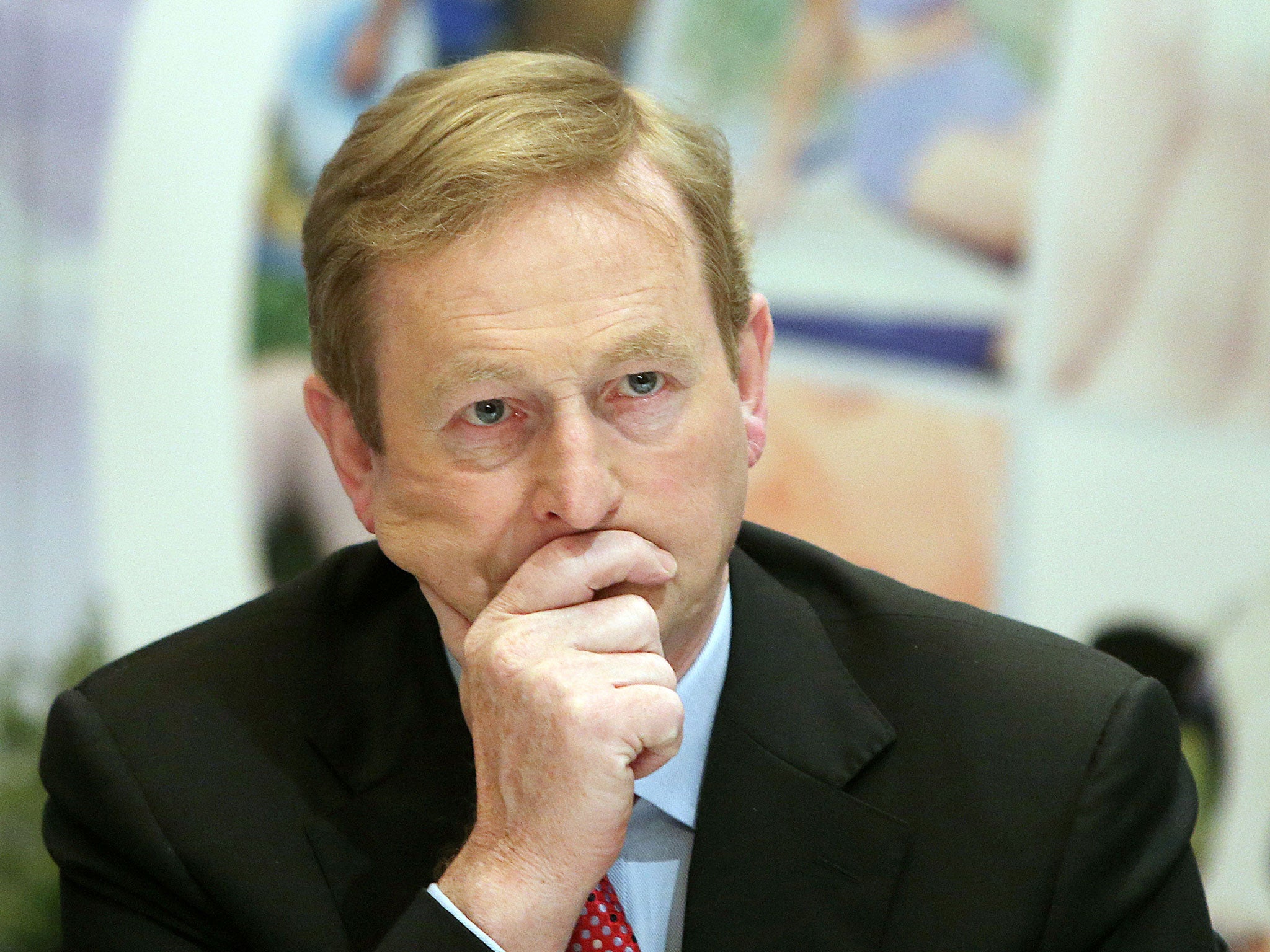Your support helps us to tell the story
From reproductive rights to climate change to Big Tech, The Independent is on the ground when the story is developing. Whether it's investigating the financials of Elon Musk's pro-Trump PAC or producing our latest documentary, 'The A Word', which shines a light on the American women fighting for reproductive rights, we know how important it is to parse out the facts from the messaging.
At such a critical moment in US history, we need reporters on the ground. Your donation allows us to keep sending journalists to speak to both sides of the story.
The Independent is trusted by Americans across the entire political spectrum. And unlike many other quality news outlets, we choose not to lock Americans out of our reporting and analysis with paywalls. We believe quality journalism should be available to everyone, paid for by those who can afford it.
Your support makes all the difference.Ireland’s prime minister has resigned – but will continue as caretaker Taoiseach until his successor is appointed.
Enda Kenny gave his notice after a failed bid to win majority support in the Dáil, the Irish parliament.
The country is currently going through a series of coalition negotiations on the formation of a new Government after a general election on 26 February.
The first sitting of the 32nd Irish parliament ended on Thursday night with an adjournment, after failing to nominate a new PM. It next meets on 22 March.
My Kenny’s party took significant losses with Fine Gael’s share of the vote down from 36 per cent to 25.5 per cent.
His losses were match by gains from his party’s traditional rivals, Fianna Fáil, who won 24 per cent, up from a low-water mark of 17.4 per cent in the previous 2011 elections.
Sinn Feinn saw moderate gains, up to around 14 per cent of the vote from 9 per cent, while Mr Kenny’s coalition partners, Labour, were gutted, losing 26 or their 33 seats.
Ireland elects its parliament using the Single Transferrable Vote system of proportional representation, which give smaller parties representation in parliament if they win votes.
The immediate results did not present any obvious coalitions. One suggested solution has been a grand coalition between Mr Kenny’s party and Fianna Fáil.
The rise of Sinn Fein also presents a problem for forming coalitions as most other parties have tended not to deal with the party, which has been accused of being associated with the paramilitary IRA in Northern Ireland.
Mr Kenny became Taoiseach in March 2011 after forming a coalition with the Labour Party. He apologised during the election campaign after describing some voters as "whingers".

Join our commenting forum
Join thought-provoking conversations, follow other Independent readers and see their replies
Comments